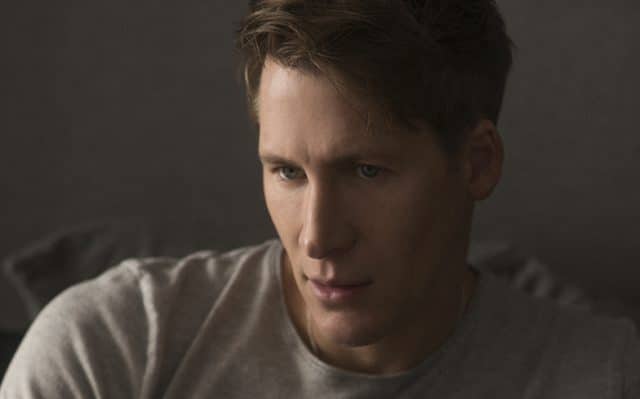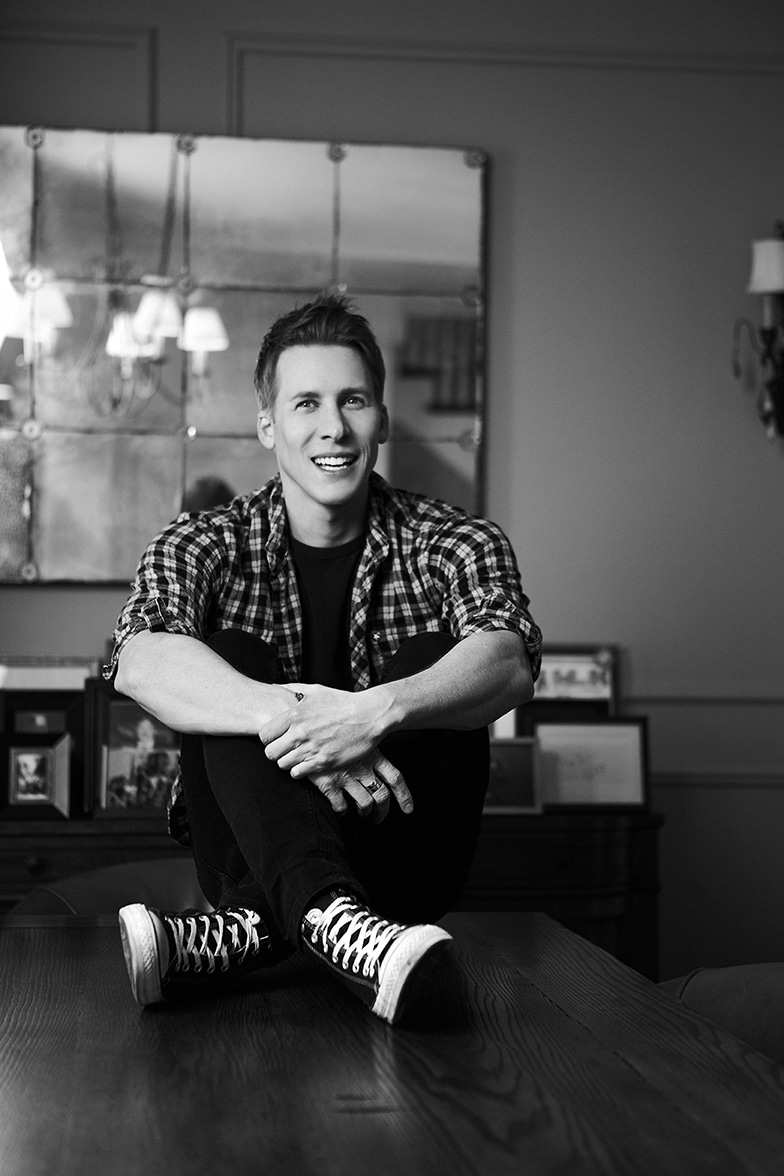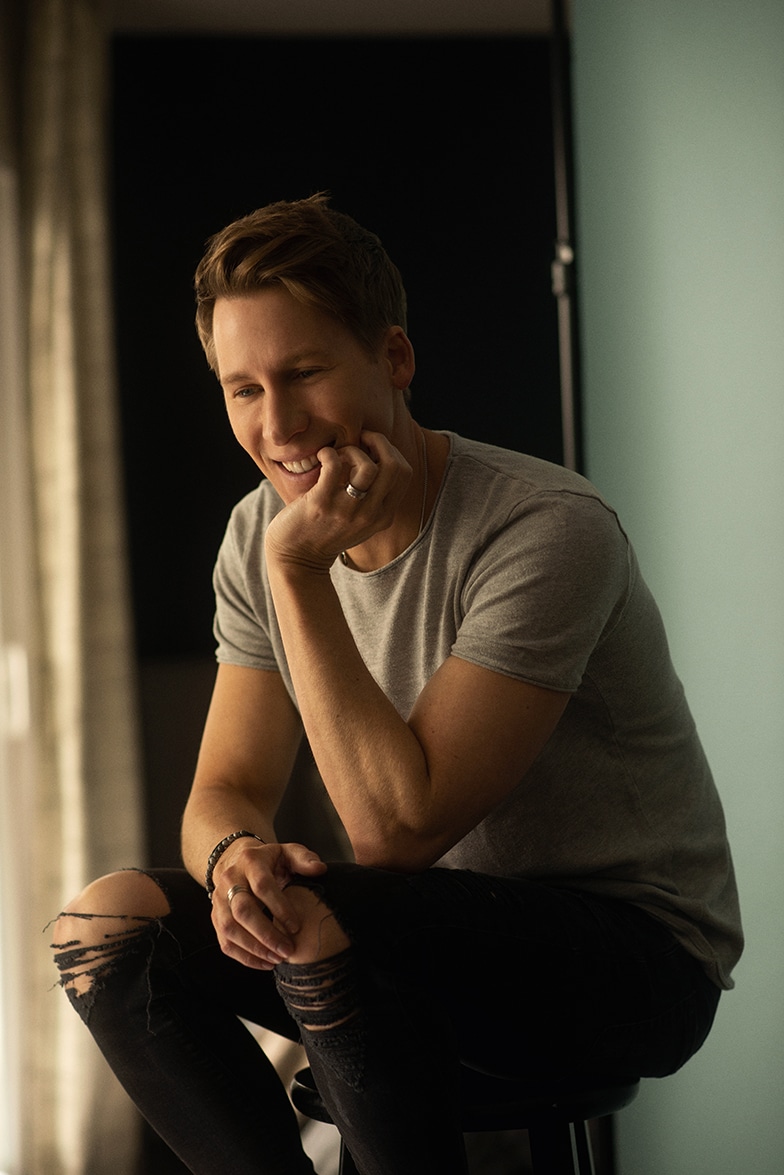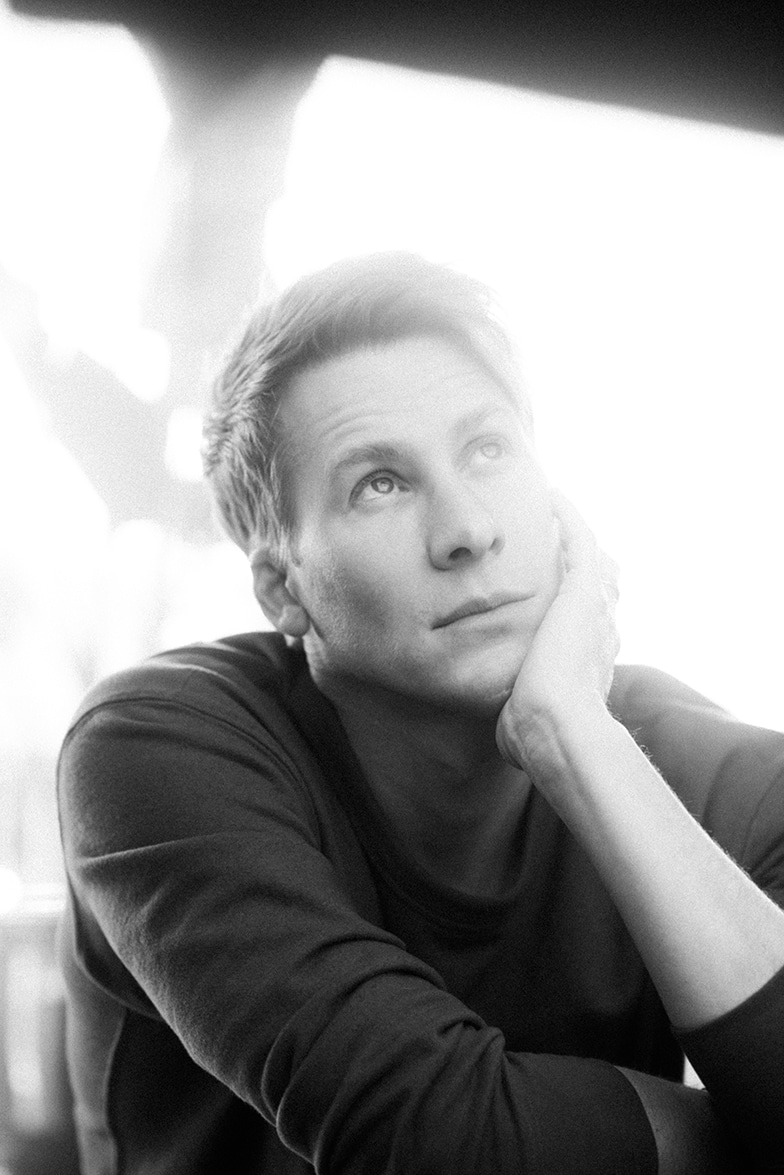
He won an Oscar for his critically-acclaimed 2008 biopic of openly gay politician and activist Harvey Milk, and later thrust himself into the fight for nationwide marriage equality in the United States. When that was achieved, he turned his focus to TV with political docudrama When We Rise, which follows 45 years of the LGBTQ movement in his home country. When witnessing the incredible progress made first hand, it would be easy to assume the hard work is over, but Dustin says he won’t be content until the whole world can enjoy the freedoms he has.
“As happy as I am for places like London or New York or Los Angeles, where LGBTQ people can live in relative safety, I don’t think our work is even near done until, for example, the young women I hear from in places like Iran feel just as safe and free,” he says. “I don’t like to focus on our progress yet, I feel like that will bring about complacency, so I find myself focused on regions in my home country that really need help, and that’s what I hope this book will do, it will start conversations within families.”
The book in question is Mama’s Boy: A Story For Our Americas, a long-anticipated memoir from Dustin which details not only his own fascinating life story, but also that of his mother, Anne, who was raised in rural Louisiana and contracted polio aged two. Ultimately, the book is a story of finding common ground in a family that appeared destined to be divided, as Anne struggled to accept her son’s sexuality, and Dustin found balance between their wildly different political views.
Here, we speak to Dustin about how his relationship with his mother has influenced him and Tom Daley when raising their son Robbie, why learning from history is so essential for LGBTQ people, and whether or not America is truly ready for a gay president.
First of all, why did now feel like the right time to write your memoir? Because it’s a really big task to take on.
Well, there were a couple of times in my life that my agents or publisher had asked me to write a memoir, but they were always around events in my life that were achievement moments, like an Oscar or a Supreme Court case, but I just thought that sounded like a terribly boring book and it had no purpose, so really this started as a conversation between my mom. We had started to see that the political divide in our own family was getting wider and that was concerning and it really stuck with me, because my mom and I had to find our common ground, because she was a paralysed woman who was raising three kids all on her own, because the father had vanished, and we had no other choice. She was raising us, we were raising her, and as time went on, and I knew that I was a gay boy living in this very conservative home, I knew we still had to find our common ground. We couldn’t live without each other. And obviously the book details how that comes to a head eventually, and what it is we had to do to find that ‘higher plane’ in politics in our family. My mom, a very conservative woman, was brave enough and curious enough to come to California and meet my LGBTQ friends. By the end of the book I realise that I’ve been a little less courageous in return, and that it was time for me to return to the south, to my conservative family in the south, and to Salt Lake City, Utah, to open up a dialogue with people I disagree with politically, to see if I could find that higher plane with the Mormon Church and a bunch of Texans.
Were there any particular experiences that you found difficult to revisit and write about?
I hope the book is really touching and really funny, and hopefully sort of surprising, but yes, it’s difficult to revisit the period of time when my mother did not accept me for who I am. It’s difficult as I moved into more recent years, I lost so much of my family and my friends over the last five years, but it was important to move through those losses so that people could understand how they motivated the actions I’ve taken since, and how loss could create action, and create understanding. None of that was easy. I recorded the audio book over the last month, and there were many times I had to get up and take a lap around the block because it was a bit upsetting for me.
Why do you think it’s so important, especially as queer people, that we learn from history?
Well, I’ve always thought that the past is filled with powerful lessons. I’m not nostalgic about history, I’m fascinated with it when it shines a light on how we can move forward and how we can avoid pitfalls in the arguments we’re making and the things we’re trying to achieve. And if you’re a student of history, it’s very frustrating because you see how often history repeats itself. Particularly for LGBTQ history, I think it’s important that we excavate it, because it has been buried in shame, it’s been buried because it’s been banned, or it’s been buried in fear because we’ve been told we’d be subjected to therapy and imprisonment if we told it. And so now it’s time to excavate it, it’s time to lift it up so that we can learn from the fine example of our forefathers and foremothers who stood up at a time when it was far more dangerous to be LGBTQ, and also not make the same mistakes that some of our forefathers and foremothers did in this fight for freedom. History is power.
There’s a huge debate about whether LGBTQ history should be taught in schools. Is this something you think should be happening?
Absolutely, it would be a lie not to include our history among others. We exist, and our history deserves to be told, and to exclude us is to turn history into fiction. Frankly, the arguments against it are ridiculous, and expose why it is we need better education on LGBTQ issues.
There has been a push lately for people to remember queer activists from the past, but is there anyone that you think needs more of a spotlight on them?
Yes, countless, too many for me to do in my lifetime, and I urge other writers and filmmakers to examine our history, because it’s filled with heroes and heroines, and it’s filled with stories we can draw from. Our history has been buried, it’s been robbed from us, and we need it more than any minority group, because we are, for the most part, ‘born behind enemy lines’ – as much as we love our parents, they’re likely not LGBTQ. Unlike other minorities, who are born into a family who understands what it will take for t hem to thrive, we aren’t always. And so we need our history. My list is very long, but I usually start with this film that I’ve been trying to get made since Milk which is about Bayard Rustin, who lives at the intersection of the Civil Rights movement and the Gay Rights movement. He’s a big one for me. But there are so many more, and they need to be as diverse as we are. They need to be L, and G, and B, and T, and Q. Now that we won’t be thrown in jail or lobotomised for telling our history – thanks to the hard work of our predecessors – it’s our responsibility to enshrine our histories to make it common knowledge.
The book centres around your relationship with your mother – how has that affected you as a parent, and the way you want to raise your own children?
My mom taught me that courage and curiosity were the most valuable qualities a person could have, and that is definitely something I’d like to pass on to our son. I want our son to know that he can achieve whatever it is he dreams of, and to take courage when people say something is impossible. I would say, ‘Just look to your great grandma, your grandma, your daddy and papa, we’ve all been told how impossible these things are, so take courage’. And then curiosity, because I think in the presence of curiosity, things like fear and anger and hatred tend to subside and vanish. People keep asking, ‘Will you raise him in a certain church?’ And I say, ‘No, but I want him to be curious about all of them, and he can go on his own journey and ask all the questions he wants, and we’ll see where that leaves him’.
Charlize Theron recently faced a lot of negativity for saying that she’s raising her eldest child – who was assigned male at birth – as a girl, because that’s the identity they’ve expressed. Some people argue that kids are too young to know. Where do you fall in that debate?
I think it’s foolish to pretend you know a child you’ve never met, and to pretend you know the home life of a child when you’ve never spent time in that home, and I think we have to trust that Charlize knows her child better than any of us could. And frankly, it’s very worrisome, as an American LGBTQ activist, to hear the anti- trans language that’s being used in the United Kingdom right now, and I would ask that people in the United Kingdom do a bit of research to find out where those hateful misinformed ideas are coming from – because they are hateful, and they are misinformed, and they date back to the most right-wing, conservative groups in the southern United States. The United Kingdom has led the way for LGBTQ equality for generations now, and by not paying attention to the facts, and by blindly adopting the worst of what the United States has, in terms of language around trans equality and trans rights and trans safety, you threaten your place as the leader of LGBTQ equality in the world. You threaten your place as a beacon of hope in the world. So stop it. Do your research, learn where these ideas are coming from, and understand why they are foolish and inaccurate. It’s interesting because I think we are creating understanding around trans equality, partly because we’ve been fighting back those same ideas here for a generation now, and we’re finally coming to a place of understanding, albeit sadly with a president in office who at the same time is turning us backwards. But you can see in the polling here that most people don’t agree with what the president is doing on trans equality. In the United Kingdom, it’s really upsetting to hear people within the LGBTQ movement adopting anti-LGBTQ ideas. It’s sickening.
We’ve spoken about historical queer figures, but if we look to the future it feels like Mayor Pete has potential to become an important part of LGBTQ history, especially if he does become president. What are your thoughts on his run for presidency?
Well, I think he’s an inspiration. I think he’s very much fulfilling the call to action that Harvey Milk made decades ago, when he made his speech in my hometown in Texas, saying, ‘You have to elect gay people because it sends a message of hope’. He’s running for the highest office in the land, and as he runs he’s not talking about LGBTQ equality, he’s talking about worker’s rights, he’s talking about people being able to earn a wage that lets them support their children, and give their children a better life than they had, and that sounds very Harvey Milk to me. So I find his candidacy incredibly inspiring. I think it also means there’s probably a queer kid out there tonight in Salt Lake City, Utah, who knows that her dreams don’t have to stop at being elected to the Senate, she can now run for presidency, thanks to someone like Pete being brave enough to throw his hat into the ring. Now, I’m not declaring yet who I’m voting for, I think it’s very early and there are other candidates running who come from underrepresented communities in our country, and they too are in their own ways like Harvey Milks to me, they’re sending messages of hope, and I think LGBTQ people also need to draw inspiration whenever our brothers and sisters in other minority movements start to make gains politically. That’s a win for everybody.
Do you think that the United States is ready for an openly gay president?
Yes, I do, and I think that also plays out in the numbers. That question’s been asked and those polls have been done, and there’s a majority who believe that. I think that’s thanks to the hard work so many have done for so long in this country. Certainly the marriage equality debate humanised us, and one of the great achievements we made was to make sure that every single person in this country realises that they know at least one LGBTQ person, and that changes everything, because now when that polling is done almost everyone says yes, so I think we are ready for a gay president. I think what they want to hear from that president, whether you’re a Republican or a Democrat, is how are you going to address those needs, as a politician, that reach that higher plane in politics? And that higher plane, universally, is that we want the next generation to have at least a little bit better life than we did. That’s the higher plane, not whether you put an R or a D on your ballot.
Dustin Lance Black’s new book Mama’s Boy: A Story For Our Americas is out now.










